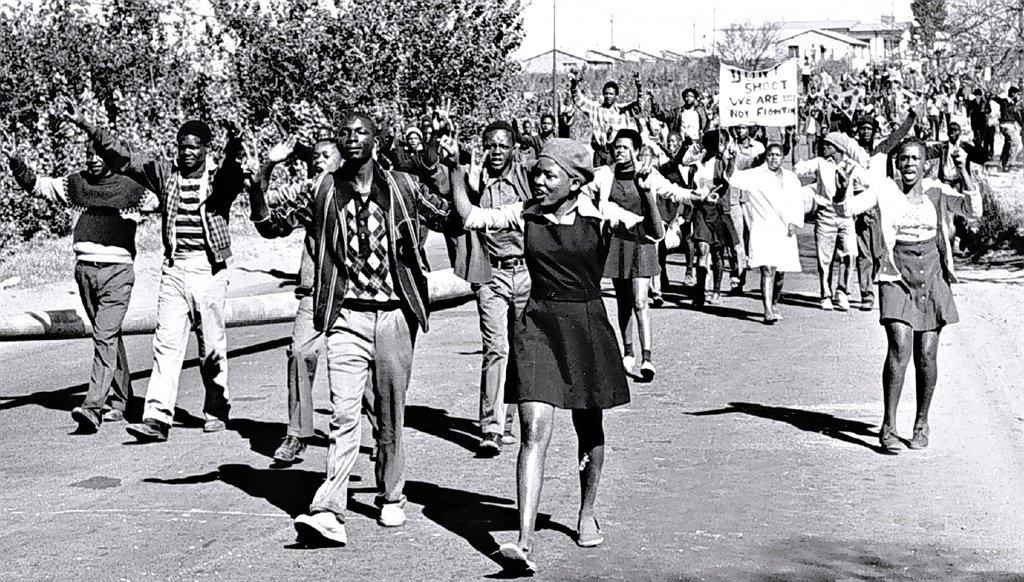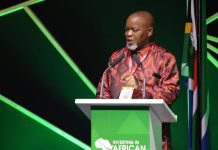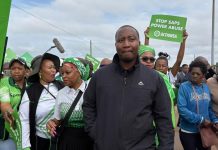Africa-Press – South-Africa. Women have always been at the centre of the revolution. Let us honour them, and place them in the place they deserve in history, writes the EFF’s
Sharon Letlape.
Women have always played a pivotal role in the struggle for freedom all across the world. The Cuban Revolution had Vilma Espin, the Russian Revolution had Alexandra Kollontai, and the Angolan resistance to colonialism had Queen Nzinga.
South Africa is no different. Standing head and shoulders as a fearless force for liberation, Mama Winnie Mandela remains an inspiring tale of a woman who, during the most conservative of eras, confronted male Afrikaner soldiers and inspired military men and youth to fight for freedom.
However, much less is said about the women of the 1976 generation, who played so critical a role that the spark, which led to the downfall of apartheid, may not have happened at all.
There is little said about the role and sacrifice of women in defiance of the imposition of a language in education, and selfless cry for freedom in an era when their elders were demoralised and scared.
The role of women
Little is said about Mama Winnie Motlalepula Kgware, who was the first female president of any political organisation, when she was made the president of the influential Black People’s Convention (BPC) of Steve Biko. Mama Kgware, as a teacher, used her role to organise and teach young people to fight for the freedom of black people, instilling the values of Black Consciousness, which led to the formation of the South African Students Organisation (SASO). This very same SASO would be at the forefront of the uprisings.
Many of us do not know that Sibongile Mkhabela was in the executive of organisations that planned, organised and executed the uprisings in Soweto.
We do not know the stories of the female nurses, who had to nurse the wounds of children as young as nine.
We do not know the chilling tales of torture, sexual assault and rape which happened in the holding cells and was done by cruel apartheid soldiers and police officers.
Women are not even a “by the way” in the re-telling of the story of 1976, they are simply forgotten, and have all become represented by the image of the teary sister of Hector Peterson, whose name many do not even know. Her name is Antionnette Sithole.
The reasons for this is that history is written and told by men. It is men who decide who to make immortal in our liberation struggle – and, for this reason, women are always forgotten.
The brave women, who were part of the 1976 uprisings, which were based on black pride and a desire to be free, have inspired generations after them to resist.
Inspired
The women of 1976 have inspired the women of Marikana, who were the backbone and lifeblood of the protracted strike for a living wage across the Platinum Belt.
If it was not for the women of 1976, we would not have had the brave women of Abahlali Basemojondolo, who led principled struggles for decent housing, in the face of intimidation and political assassinations.
It is because of the women of that 1976 generation that, decades later, thousands of EFF women marched in the streets of Johannesburg, demanding that law enforcement agencies and the courts treat gender-based violence for what it is: a war against women and children.
Zwe Nxumalo -Remove bondage of despair from youth to avoid betraying the ’76 protesters
We must, therefore, always remember that we must speak of history in a representative way, because that will inspire future oppressed people to see themselves as capable of resistance.
Representation in history allows those who may be subjected to injustice to find a reference point for themselves, and to wage the struggle by carrying a baton from a previous generation.
It is through representation and promotion of our history that women will know that carrying a rifle, addressing thousands of dispossessed and landless people and dying for freedom is not the sole experience of men.
‘Centre of the revolution’
The role of women has always been far more than the reproductive labour that all seem to think is simply what women should do in times of struggle.
Revolutions have been charted on the backs of women. From the slave rebellions, led by Harriet Tubman in the United States of America, to the literary revolutions, led by the likes of Charlotte Maxeke here in South Africa.
Women have always been at the centre of the revolution.
So let us remember the women of 1976. Let us remember the mothers who had to clean the wounds of their children. Let us remember the grandmothers who provided shelter to the combatants who confronted machine guns with stones.
Let us honour the young women who tied up their hair and their dresses, and picked up stones and died for our political freedom. Let us honour them, and place them in the place they deserve in history.
– Sharon Letlape is a member of the EFF Central Command Team and a councillor in the Rustenburg municipality, North West.
For More News And Analysis About South-Africa Follow Africa-Press






